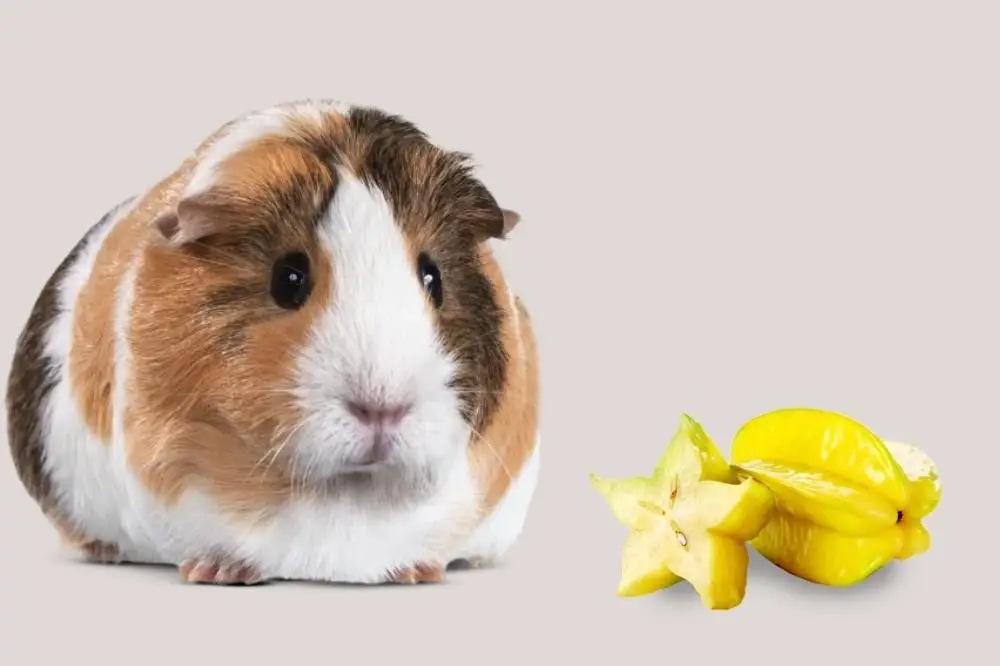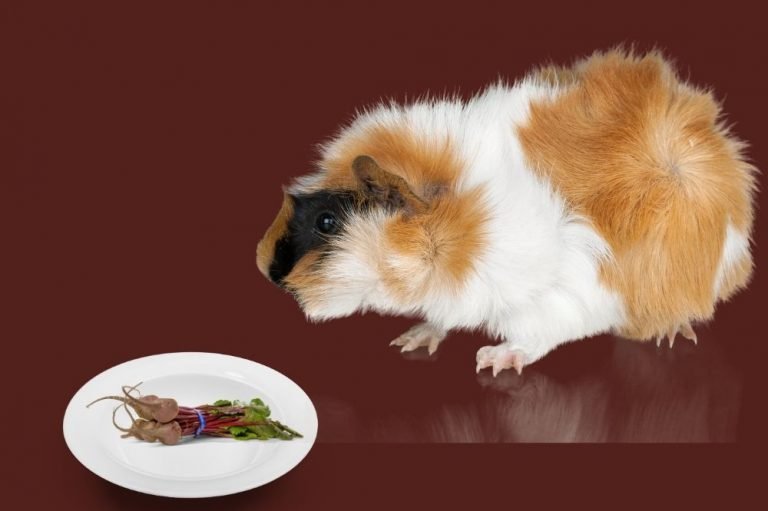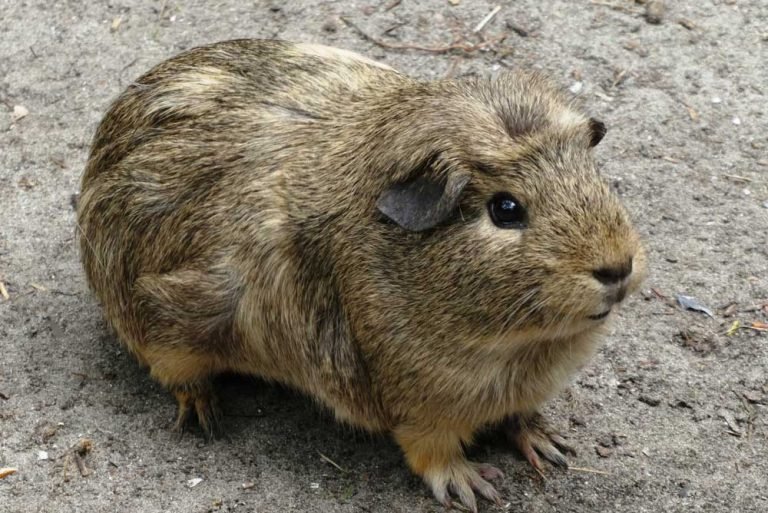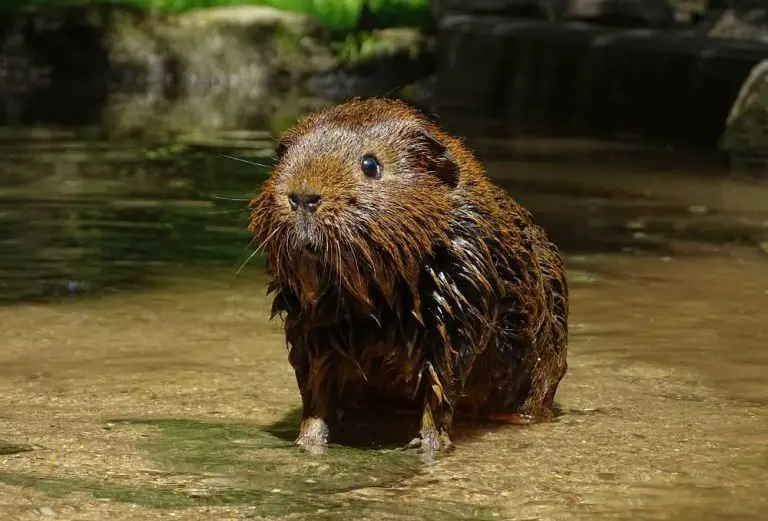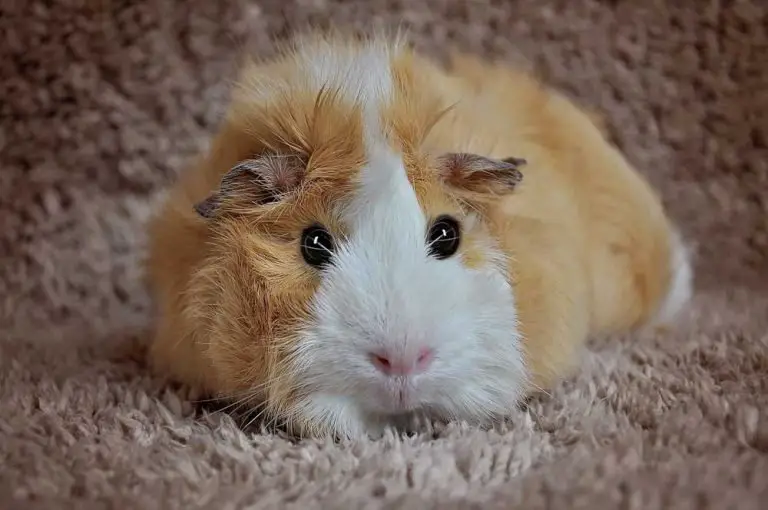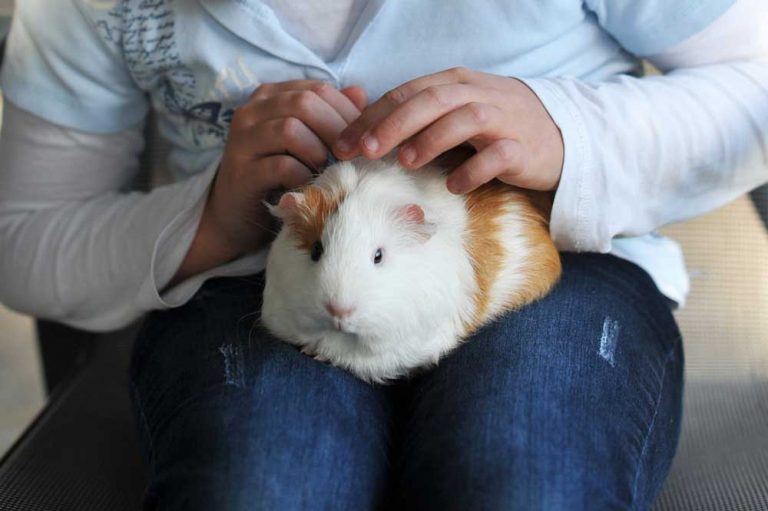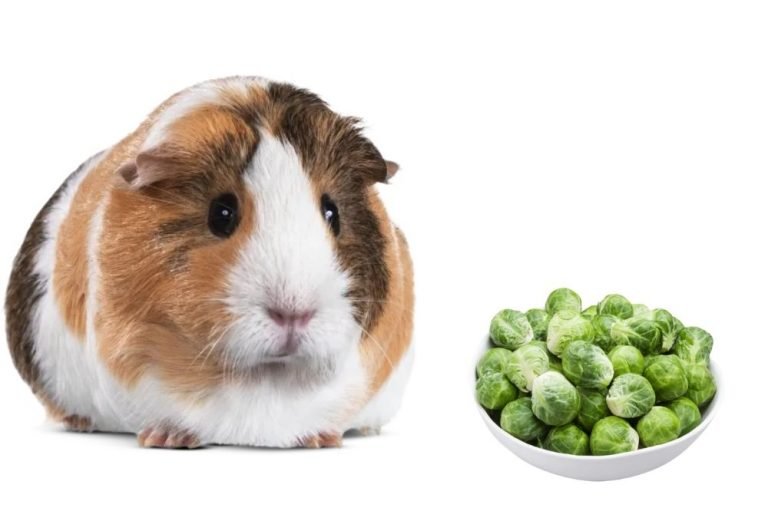Can Guinea Pigs Eat Star Fruit?
Guinea pigs are adorable small pets that will feed on anything you give them. They love having their treats too and they will popcorn delightedly whenever you offer them some.
Treats can consist of veggies and fruits that they enjoy eating like carrots and watermelons. They should be fed in moderation however to avoid bringing health problems to your pet.
While looking for new additions to your pet’s diet, you may wonder whether star fruit is safe for them to eat as well.
Popularly known as carambola, the fruit is native to Asia. It has 5 ridges that give it a star shape when sliced up. It can be eaten raw, juiced, or cooked.
So, can you feed it to guinea pigs? Let’s find out.
Can guinea pigs eat star fruit?
Guinea pigs can eat star fruit because it’s highly nutritious. It’s filled with Vitamin C which prevents scurvy, dietary fiber that aids in digestion, magnesium which enhances the functioning of heart muscles, and potassium that reduces blood pressure. However, star fruit should be fed in small amounts because it’s high in sugar, oxalic acid, and phosphorus.
Benefits of feeding star fruit to guinea pigs
Star fruit is packed with the basic nutrients required by guinea pigs that are Vitamin C and dietary fiber. Let’s look into their benefits.
Vitamin C
Guinea pigs are not able to produce their own Vitamin C, just like humans, and they also lack the ability to store it in their bodies. This makes it vital to provide the vitamin to them in the form of supplements or foods rich in it.
Lack of Vitamin C leads to health problems in guinea pigs. Scurvy is one such problem and it’s quite common in the small pets.
The condition affects their bones, joints, and skin leading to painful joints, a rough coat, and lethargy in your pet.
Star fruit is generally known to have a high amount of Vitamin C. Feeding it to your guinea pig will prevent scurvy in addition to boosting their immunity and helping them fight diseases better.
Dietary fiber
Guinea pigs have a delicate digestive system that needs a lot of fiber to function properly. Lack of fiber in their digestive tract leads to painful constipation and diarrhoea.
Star fruit has a high fiber content that is useful in enabling smooth digestion in guinea pigs. Dietary fiber also aids in regulating blood sugar.
It slows down the rate at which sugar is broken down and absorbed into the bloodstream. This helps in distributing energy throughout the day in your pet’s body enabling them to be active and energetic all day long.
Magnesium
Star fruit also contains magnesium which enhances the functioning of heart muscles.
Potassium
Potassium found in star fruit works in reducing blood pressure in the body by lessening the effects of sodium and easing tension in the walls of blood vessels. This lowers the pressure of blood.
Effects of feeding star fruit to guinea pigs
Star fruit is highly nutritious but if fed in large amounts it can lead to health issues in your pet. Some of the components harmful in high quantities include:
Sugar
Sugar is harmful to the health of guinea pigs. Sugar can make them gain unhealthy weight which in turn results in an obese pet.
Obese guinea pigs will have problems with movements and grooming. Their immunity is also lower making them highly susceptible to illness.
Sugar leads to tooth decay which is a painful problem considering that they usually have other natural dental issues because of the frequent overgrowth of their teeth. Sugar also leads to stomach upsets and diarrhoea.
Oxalic acid
Star fruit is sweet and sour. It contains oxalic acid which may be harmful to your pet.
Oxalic acid binds with calcium to form bladder stones which are painful. Bladder stones bring about urination problems in guinea pigs.
Signs of bladder stones are; blood in urine, crying in pain while urinating, and being unable to urinate.
Phosphorus
Phosphorus leads to slow growth in your pet. High phosphorus levels will even shorten your guinea pig’s life by leading to a high mortality rate in them.
Do guinea pigs love star fruit?
Some guinea pigs will love star fruit while others will not. The fruit can be sweet or sour making the taste vary.
Starfruit alternatives
If your guinea pig doesn’t like star fruit, you can offer them other fruit alternatives like:
Strawberries
Strawberries are healthy and packed with nutrients. They are delicious and guinea pigs love eating them.
They contain Vitamin C which is good for scurvy, antioxidants that reduce inflammations, fiber for constipation, and Vitamin A.
Bananas
Bananas are another sweet treat. They’re high in Vitamins C and B6. They also have potassium and manganese.
Apples
Apples can be eaten with their peels but their seeds should be removed. This is because they are toxic and harmful. Apples have Vitamin C, antioxidants, and fiber.
How to feed star fruit to guinea pigs
Star fruit should be fed to guinea pigs while fresh, and not in any other form. If cooked, dried, or served as juice, it will have high sugar content, preservatives, and ingredients that may be harmful to your pet.
The fruit is green but turns all yellow when it’s ready to eat so make sure that it’s ripe. When it over-ripens, it begins to have brownish patches.
Wash the fruit carefully to get rid of bacteria and chemicals. It can be eaten with the skin so slice it up into smaller pieces.
Give your pet one or two slices. Starfruit should be eaten once or twice a week. You can offer it as a treat.
Conclusion
Star fruit is nutritious for guinea pigs with good amounts of Vitamin C, fiber, magnesium, and potassium.
The fruit should be fed once or twice a week to minimize harmful health issues that may be brought about by sugar, oxalic acid, and phosphorus.
If your guinea pig doesn’t like starfruit you can give them alternative fruits that are nutritious as well like strawberries, apples, and bananas.
The fruit should be fed fresh and not dried or in any other form including juice.

